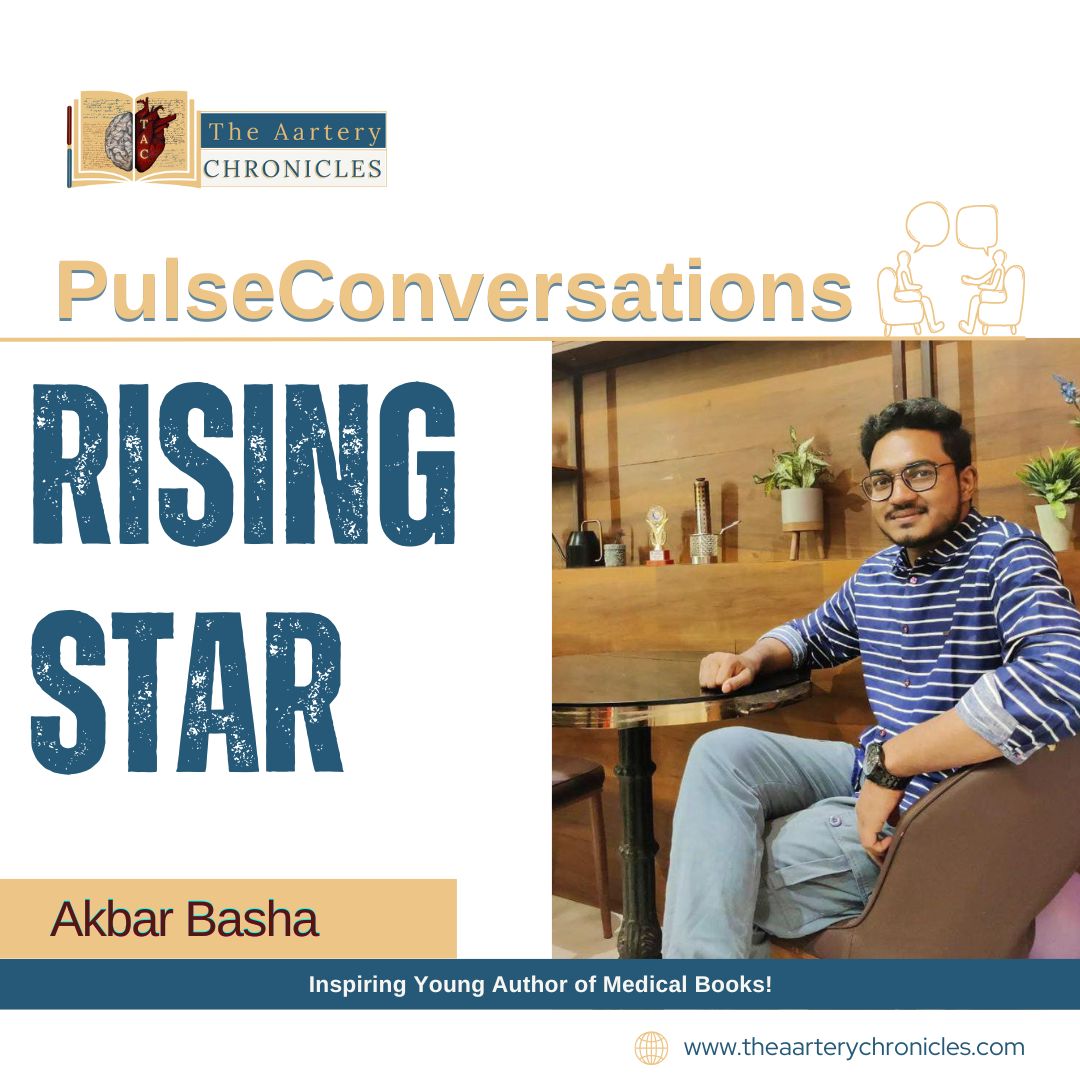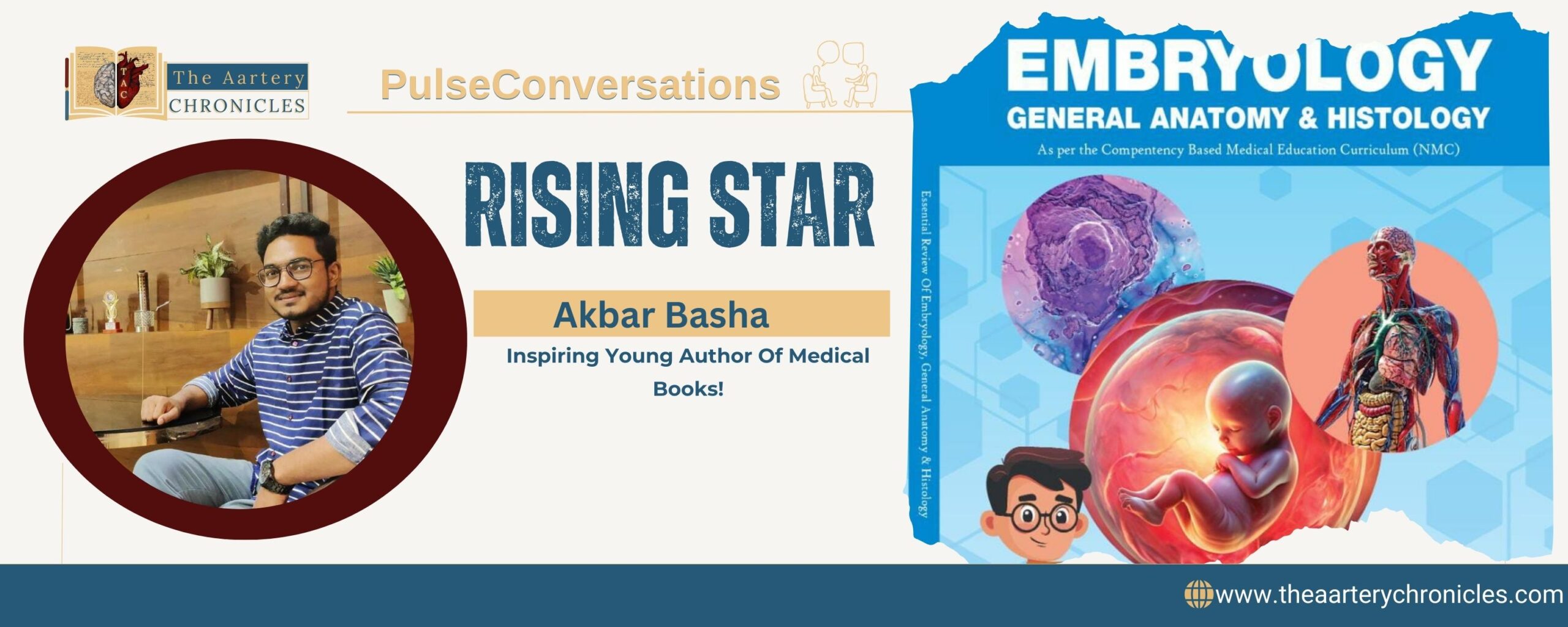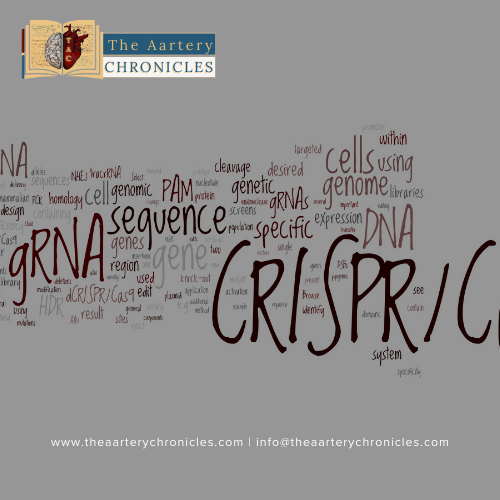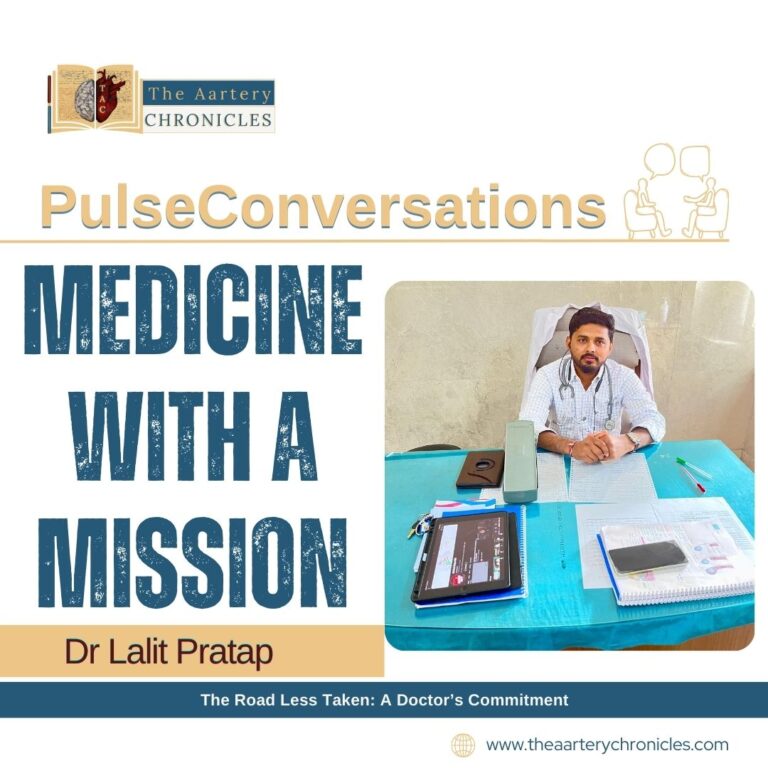

Transforming Medical Education: Akbar Basha's Innovative Approach!
Meet Peddaputha Akbar Basha, a young and inspiring MBBS student from Kurnool Medical College, Andhra Pradesh, India, batch of 2020. Born in Rayachoty, Andhra Pradesh, Akbar has already made remarkable strides in simplifying medical education. Despite being a student himself, he has authored concise, student-friendly books on histology and embryology, aiming to make complex subjects easier for medical aspirants.
Recognizing the value of his work, Priya Bairagi from The Aartery Chronicles reached out to Akbar for an exclusive interview. Together, they discuss his journey, challenges, and vision to transform medical learning resources.
Here’s how the conversation unfolded:
Priya: How did you decide to write a book on this subject? What motivated You?
Akbar Basha: It wasn’t just a topic, ma’am; it was addressing a real issue. As an MBBS student, I saw how many students like me struggled with these subjects. Some couldn’t fully comprehend the material, which created challenges for further studies, postgraduate exams, or even tests like the USMLE.
Students often struggle with memorizing and understanding complex topics, and I wanted to make things easier—especially for my juniors. That’s what inspired me to create this book. At first, it was just meant for them, but I soon realized that students all over India could benefit from it. That’s when I decided to publish it on a larger scale and even consider sharing it as a PDF.
After receiving feedback from seniors, I corrected grammar and spelling errors and spoke with my parents, who supported me financially. We published it, and so far, around 150 copies out of 500 have been distributed without any promotion.
Just yesterday, SIA Publications, a leading publisher in South India, reached out to me. They’ve shown interest in my histology book, and I’m now planning to create a separate edition for students at Ghana University. I’ve also completed an embryology book, obtained a copyright from the Government of India, and plan to distribute free copies to select students as part of ongoing discussions.
Priya: Can you explain how concepts are described and defined in your book?
Akbar Basha: Yes, ma’am. Compared to standard medical books, which are often lengthy and complex, I’ve simplified the content to suit today’s students. Modern distractions like social media leave little time for intensive reading, and many students struggle with traditional textbooks.
For example, most histology books are about 400 pages. I condensed all the essential content into just 120 pages, using simple English, mnemonics, and easy explanations inspired by platforms like Marrow and Prepladder. These platforms succeed because they make learning accessible, and I’ve applied the same principle to my books.
Priya: Reducing a book to 120 pages is impressive. Are all concepts fully covered?
Akbar Basha: Absolutely. To ensure the effectiveness of my approach, I tested my histology book on juniors during their internal exams. Some studied from my book, while others used standard texts. The ones who used my book experienced less stress, retained more information, and performed better.
This experiment confirmed that condensing content without sacrificing quality works. I’ve applied the same method to embryology, where my revisions brought the book down to just 90 pages while covering all critical topics.
"Condensing content without sacrificing quality really works—I saw it firsthand when my juniors used my histology book. They felt less stressed, retained more, and scored better."
Akbar Basha, MBBS Student
Priya: Are both your books available in hard copy?
Akbar: My histology book is available in hard copy, but I haven’t printed the embryology book yet. However, I’ve secured copyrights and plan to print it soon.
Priya: How do you manage your time between studying and writing? What challenges have you faced?
Akbar Basha: I approach this with dedication and determination, which minimizes stress. My process involves noting key points while studying and then converting them into written drafts on A4 sheets. Later, I type them out using my tablet and iPad.
The conversion process is time-consuming and puts strain on my eyes and fingers. Afterward, I review and correct grammar and spelling errors, sometimes consulting juniors for feedback.
In terms of time management, I prioritize studies during college hours. After 5 PM, I return to the hostel, revise the day’s lessons, and then work on my books. I avoid excessive social media use to focus on writing.
Priya: How has writing a book helped you personally and professionally? Any Unexpected Benefits?
Akbar Basha: During this distribution and social media promotion, Dr Mayukh Pandit sir became my mentor after connecting through LinkedIn. From there, he provided instructions and guidance.
The unexpected benefits? Well, especially with Mayukh Pandit sir and SIA publications. As a student, it’s challenging to envision job opportunities. But Mayukh Pandit sir assured me of such prospects, affirming that I am worthy.
In Birland Africa, Mayukh Pandit sir is establishing 170 hospitals. Out of these, he appointed me as a chief medical officer for one hospital. Later, he mentioned building a multispecialty hospital in Kolkata, where he suggested I could work after completing my MBBS.
Additionally, he mentioned an international approach to interviews and even posted about me and my books on his status and stories, attracting reactions from high officials in Africa.
Furthermore, SIA publications offered me an extensive opportunity to collaborate with them on book projects, which was unexpected at my age. These developments were unexpected in my journey as an author.
Priya : What advice would you give to MBBS students who want to write a book?
To aspiring authors, I’d say focus on writing simple, concise books. Students need material they can digest quickly while balancing studies and personal life.
Avoid overlapping content with existing books to prevent copyright issues. Always register for an ISBN and copyright before publishing to protect your work. I learned this the hard way, so I recommend securing copyrights first.
"An unexpected highlight was connecting with Dr Mayukh Pandit Sir on LinkedIn—he became my mentor. He guided me and opened doors to international opportunities, like a role as Chief Medical Officer at a hospital in Africa and collaborating on a multispecialty hospital project in Kolkata. Additionally, SIA Publications offered me exciting projects—something I never imagined as a student.."
Akbar Basha, MBBS Student
The Aartery Chronicles is proud to feature Akbar Basha, a rising star in the medical field whose dedication to simplifying education is making a real impact. We thank him for sharing his inspiring journey and look forward to seeing the heights he will reach in the future.

Priya Bairagi
I’m a pharmacist with a strong background in health sciences. I hold a BSc from Delhi University and a pharmacy degree from PDM University. I write articles and daily health news while interviewing doctors to bring you the latest insights. In my free time, you’ll find me at the gym or lost in a sci-fi novel.
- Medicine and Diseases
- Nutrition and Diet









